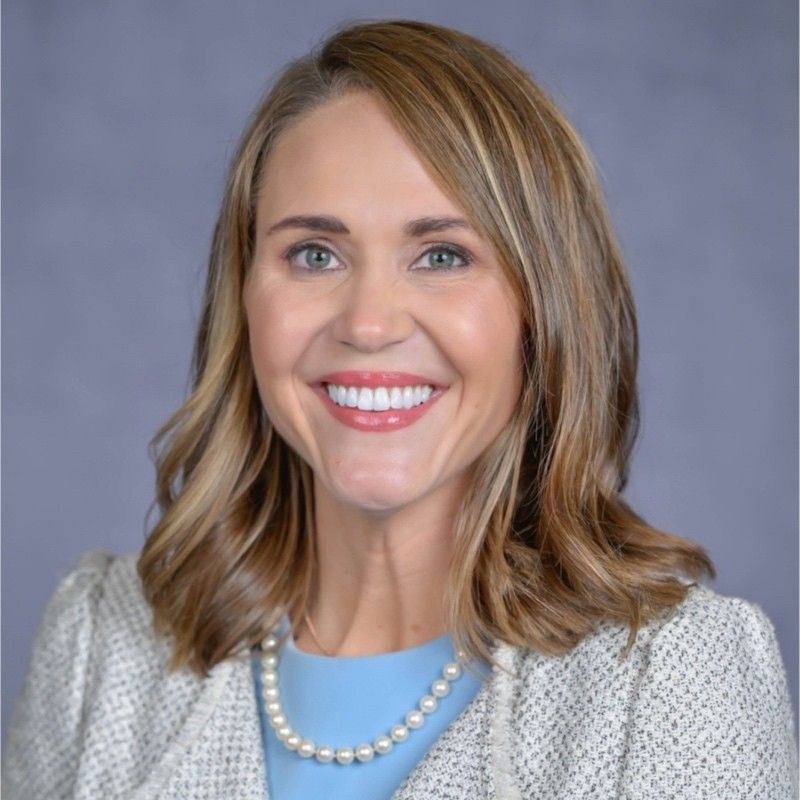
- Bone Health
- Immunology
- Hematology
- Respiratory
- Dermatology
- Diabetes
- Gastroenterology
- Neurology
- Oncology
- Ophthalmology
- Rare Disease
- Rheumatology
Q&A With Dr Chelsee Jensen: Navigating FDA Approvals, Challenges in the Biosimilar Landscape
Chelsee Jensen, PharmD, BCPS, senior pharmacy specialist and pharmaceutical formulary manager at Mayo Clinic, reacts to the biggest FDA approvals of 2023 and how she sees the adalimumab, natalizumab, and tocilizumab spaces playing out.
Chelsee Jensen, PharmD, BCPS, senior pharmacy specialist and pharmaceutical formulary manager at Mayo Clinic, reacts to the biggest FDA approvals to come out of 2023 and how she sees the adalimumab, natalizumab, and tocilizumab spaces playing out in the years to come.
The Center for Biosimilars® (CFB) got a chance to speak with Jensen at the Academy of Managed Care Pharmacy's annual Nexus meeting in Orlando, Florida.
Chelsee Jensen, PharmD, BCPS | Image Credit: Mayo Clinic

CFB: Recently, the FDA approved the first natalizumab and tocilizumab biosimilars. What was your reaction to these approvals and what hope does this provide for the industry's future?
Jensen: I'm obviously very excited about these approvals; the more biosimilar competition, the better. However, what we need to recognize right now is that while these were FDA approved, they probably are not going to be entering the market.
For tocilizumab, we likely will not see this biosimilar coming to the market until potentially anywhere out to 2025. For natalizumab, I think it's out even further. That's just something to understand from a pharmacy level that while these are approved, they do take some time to get to the market.
For tocilizumab, specifically, it's only approved in the IV [intravenous] formulation, whereas tocilizumab, the reference product, has a [subcutaneous] and an IV formulation, as well as the IV biosimilar only has an indication for rheumatoid arthritis—so it has a skinny label. Just something to keep in mind as we get closer to the launch of this: How are we going to implement it into a formulary as a health system with those skinny label indications?
For natalizumab, we don't have those skinny label hurdles to get over. This is, again, essentially equivalent to the reference product as far as indication, so there should be less operational hurdles in that space.
CFB: What challenges exist in ensuring that biosimilars are accessible to all, especially in vulnerable or marginalized communities? How can these challenges be addressed?
Jensen: Well, I personally think our vulnerable and marginalized communities are probably being treated at our rural referral or sole community hospitals out in the community, and we have to realize that biosimilars are a huge opportunity for those hospitals that are probably 340B eligible. Many reference products carry orphan drug exclusivities, therefore they're not mandated to offer a 340B price, whereas biosimilars do not have that orphan drug exclusivity and they can come out at a 340B price.
I'm hoping that biosimilars actually will increase access to these marginalized and vulnerable populations. However, education is always going to remain key. Educating the patient, again, that biosimilars are equally as safe and effective as reference products remains key. If there are financial considerations, still working with those patients to say, are there manufacturer co-pay assistance programs available out there to improve their access to care, as well.
CFB: Several adalimumab products that entered the US market this year launched with 2 list prices. Can you explain why a company would use this pricing strategy and do you think this trend will continue in other markets?
Jensen: I do think with the pharmacy benefit drugs, we might continue to see this trend. And this is happening because, again, from a manufacturer standpoint, in order to get on to some of these insurance formularies, we realize that some insurance companies have a historical precedence of being used to these large back-end rebates. We'll see manufacturers potentially come into the market with 2 list prices to be more appealing to those insurer markets, whether they want the lower discount or the more deeper discount.
But one thing that we'll have to kind of keep trending and watching out for in this space, especially with adalimumab, is what's happening to the patient. I know a lot of talk or assumption is that the patient will utilize manufacturer co-pay assistance. However, we have to recognize that not every single patient on an insurance plan is going to qualify for that. So are we truly opening up access? And I think that'll just be something to continue to watch as adalimumab biosimilars roll out.
CFB: In recent months, Abrilada was approved as the second interchangeable adalimumab biosimilar. How do you think the interchangeability label will influence payer preferences and prescription habits in the adalimumab space?
Jensen: I do think that interchangeability makes it much easier. Obviously, you do not need to intervene and contact the provider to change the prescription over. However, I think that smaller community sites could come up with alternative mechanisms, such as potentially collaborative practice agreements if their state laws allow that, and that would still kind of get over that operational hurdle of that interchangeability.
But again, I don't know that they don't necessarily have a huge impact on insurers uptaking biosimilars. I think they're probably going to be focused more on, does the delivery of device match what that reference product is and what are those price points.
Newsletter
Where clinical, regulatory, and economic perspectives converge—sign up for Center for Biosimilars® emails to get expert insights on emerging treatment paradigms, biosimilar policy, and real-world outcomes that shape patient care.
259 Prospect Plains Rd, Bldg H,
Cranbury, NJ 08512
All rights reserved.